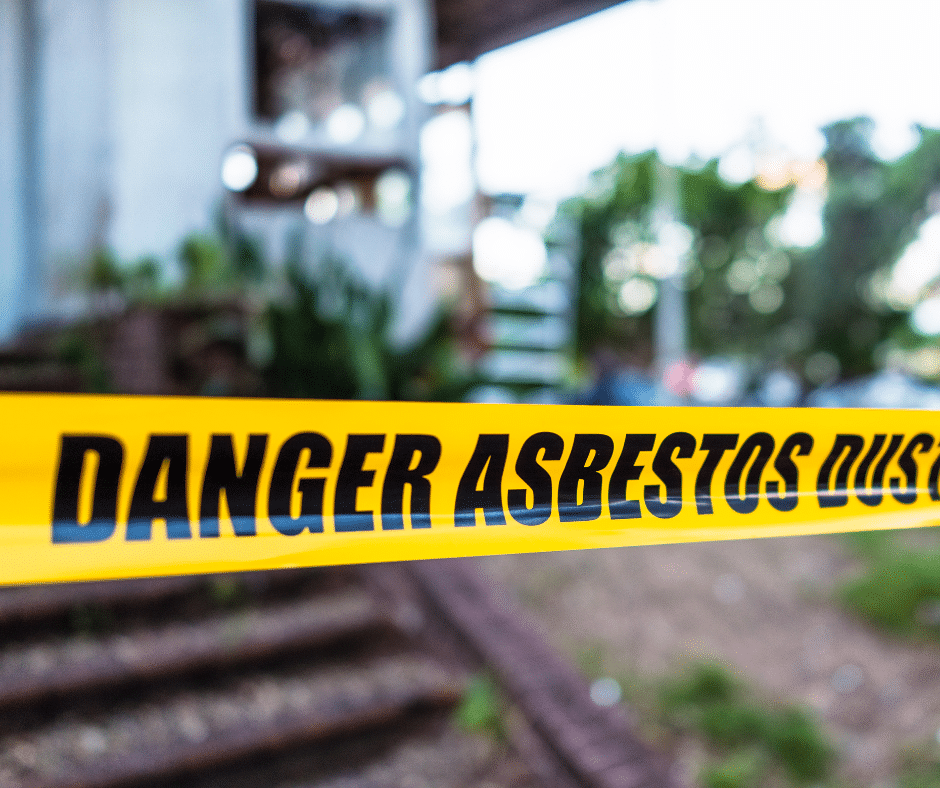
Laurita Rodriguez
“In the state of New York, you have three years from the time the accident occurred to file a lawsuit, however if you’re suing a governmental agency then that statute is different; you have one year and 90 days from the time the incident occurred.”
- Statute of Limitations: The statute of limitations restricts the timeframe within which a civil lawsuit must be filed after an injury occurs, typically from the date of injury until the lawsuit is filed.
- Variations by Type of Injury: Statutes of limitations vary based on the type of injury, such as personal injuries, medical malpractice, sexual abuse, human trafficking, injuries caused by criminal acts, claims against government entities, false arrest, and malpractice by engineers and architects.
- Exceptions and Extensions: Certain circumstances may delay the statute of limitations, including stays issued by the court, termination of a previously filed case, defendant’s absence from the state, defendant’s use of a false name, disability, or minority of the injured party.
- Impact of Death: Civil lawsuits can survive the death of either the plaintiff or defendant, with specific timeframes for filing after the death of either party.
- Consequences of Missing the Deadline: Filing a lawsuit after the statute of limitations has expired typically leads to dismissal of the case, limiting legal options and recovery opportunities.
- Legal Assistance: Consulting with an experienced personal injury attorney, like those at Meirowitz & Wasserberg, LLP, is crucial for understanding and meeting statutory deadlines to ensure maximum compensation for injuries. Initial consultations are often free, and fees are contingent on successful recovery, providing accessible legal support for injury victims.
The statute of limitations for personal injury cases in New York bars cases from moving forward after the specified period of time has elapsed. Unless otherwise specified in the law, the statute of limitations is computed from the time the injury occurs until the date the civil lawsuit is filed.
The laws regarding the statute of limitations can be confusing, and this can cause injury victims to miss their window of opportunity to claim much-needed and well-deserved compensation. Our NYC personal injury lawyers explain what you need to know.
Quick Links
- Statute of Limitations Terminology
- New York Personal Injury Statutes of Limitations by Type of Injury
- Can the statute of limitations ever be delayed?
- How does death impact the statute of limitations?
- What happens if I file a lawsuit after the statute of limitations has expired?
- Contact Sam N’ Dan Before the Statute of Limitations Runs Out on Your Claim
Statute of Limitations Terminology
The New York statute of limitations is not always straightforward. There are many exceptions and technicalities that must be considered when determining when the statute of limitations takes effect. Understanding the terminology most often used when applying the statute of limitations can help allay some of the confusion.
Discovery Rule
The discovery rule is an exception to the statute of limitations that allows the clock to be reset to the date at which the injury was or reasonably should have been discovered. For example, if a foreign object is left in a patient’s body after surgery, but it is not discovered until years later, the clock may be reset to the date the object was or should reasonably have been discovered.
Toll
When a statute of limitations is tolled, it means the clock has stopped running until certain conditions are met.
Accrue
When a statute of limitations begins to accrue, it means the clock has started to run.
Cause of Action
A cause of action is the negligent act or omission committed by the defendant that caused the injury. For example, in the case of the foreign object left in a patient’s body during surgery, the cause of action is the health care provider’s negligent act of leaving behind the object.
Statute of Repose
A statute of repose is a statute of limitations that begins to accrue at the time the cause of action occurs, without an exception for delayed discovery. New York currently does not have a statute of repose.
Look-Back Window
A look-back window is a prescribed period of time during which previously time-barred claims can be filed, usually due to the passage of a law expanding the statute of limitations.
New York Personal Injury Statutes of Limitations by Type of Injury
The statute of limitations for personal injuries varies based on the type of injury involved and, in some cases, based on who the defendant is.
Most Personal Injuries
The default statute of limitations in New York for personal injuries is three years from the date of the injury. This applies to all personal injuries except when otherwise specified by law. This includes such personal injuries as the following:
- Car accidents
- Truck accidents
- Slip-and-fall accidents that occur on private property
Medical Malpractice
The statute of limitations for medical malpractice, which includes medical, dental and podiatric malpractice, is two years and six months from the cause of action, with the following exceptions:
- The statute of limitations begins to accrue after the last treatment is completed in cases involving continuous treatment for the same illness, injury or condition.
- If a foreign object is discovered in the body of a patient that was left in error during surgery, the statute of limitations is one year after the object is or reasonably should have been discovered.
- In the case of negligent failure to diagnose cancer or a malignant tumor:
- The statute of limitations is two years and six months after the patient knew or reasonably should have known that negligence occurred or that it caused an injury.
No case can be brought if more than seven years have passed since the cause of action occurred.
The statute of limitations law specifies that the term “continuous treatment” does not include examinations at the request of the patient to ascertain their condition. Also, the term “foreign object” does not include devices and products intentionally placed for therapeutic purposes during surgery.
Sexual Abuse and Assault
A civil action for physical and psychological harm brought about by sexual abuse perpetrated on a minor can be brought until the survivor turns 55 years of age, thanks to the recently-passed Child Victims Act. Prior to its passage, survivors had to file civil claims by the time they reached 23 years of age.
Individuals and businesses whose intentional or negligent acts or omissions facilitated the sexual misconduct listed below or allowed it to continue can be sued for up to 20 years following the abuse.
- Rape in the first, second or third degree
- A criminal sexual act in the first, second or third degree
- First-degree incest
- Second-degree incest where the act includes second-degree rape or a second-degree criminal sexual act
- First-degree aggravated sexual abuse
- Sexual conduct against a child
It is not necessary for a criminal conviction to have occurred for this to apply.
Human Trafficking
A civil lawsuit may be filed for the personal injuries brought about as a result of human trafficking for up to 15 years after the trafficking ceases. Human trafficking activities for the purpose of this limitation include the following:
- Forced prostitution
- Labor trafficking
- Sex trafficking
- Aggravated labor trafficking

Injuries Caused by Criminal Acts
When the commission of a crime causes personal injuries, the victims are entitled to file a civil lawsuit for up to seven years from the date of the crime for most crimes, or in the case of the following crimes, 10 years from the date of conviction:
- A violent felony
- A class B felony
- Any offense that does not allow early release
- Any first-degree felony
- Grand larceny in the second or fourth degree
- Criminal possession of stolen property in the second degree
- Any crime that has all of the elements of the above committed against a resident of the state
Claims Against State or Local Government
Personal injury claims against a city, state, county, town or village in New York must be filed within one year and 90 days of the cause of action. However, in order to be eligible to proceed with the civil lawsuit, you must file a Notice of Claim within 90 days of the cause of action. Examples of governmental agencies where this would apply include the following:
- Police departments
- Public housing agencies
- Public transportation entities
False Arrest and Excessive Force by a Sheriff, Coroner or Constable
Personal injury claims against a sheriff, coroner or constable that involve the following offenses must be filed within one year:
- Assault
- Battery
- False imprisonment
- Malicious prosecution
- Libel
- Slander
- False words causing special damages
- Violation of the right to privacy
The following exceptions apply:
- In cases of ongoing criminal actions by the sheriff, coroner or constable, the statute of limitations is one year from the termination of the action.
- If the offense involves sexual crimes against the victim, the statute of limitations is at least five years from the last cause of action.
- If the injury arises from domestic violence, the statute of limitations is two years.
A Notice of Claim is not required in cases against a sheriff, coroner or constable.
Malpractice by Engineers and Architects
There is no statute of limitations on claims for personal injury, wrongful death or property damage resulting from defective building systems due to the negligence of licensed engineers and architects. If, however, the claim is filed more than 10 years after completion of the project, the claimant must file a 90-day Notice of Claim outlining the errors and omissions that are being alleged.
Exposure to Substances
Personal injuries that stem from exposure to substances that were absorbed, contacted, ingested, inhaled, implanted or injected have a three-year statute of limitations that does not begin to accrue until the date the exposure was discovered or should reasonably have been discovered.
When scientific or medical evidence reveals the cause of the injury less than five years after discovery, a claim can be filed within one year with proof that such information was not previously known. This does not apply to cases of medical malpractice.
If the site where the exposure occurred is a superfund site under state or federal law, the statute of limitations begins to accrue on the date of the designation, date of injury or date of discovery, whichever is later.
Wrongful Death
The statute of limitations for damages due to wrongful death is two years from the date of the death, except in specific cases otherwise specified by law.
Can the statute of limitations ever be delayed?
The statute of limitations may be tolled in the following instances:
- When the court issues a stay against the commencement of an action
- If the cause of action was initially filed on time and terminated for reasons other than the fault or voluntary termination by the plaintiff
- For example, in the death of the plaintiff where the cause of action survives, the case can be re-filed within six months.
- If the defendant leaves the state
- If the defendant resides in the state under a false name that is unknown to the plaintiff
- If the cause of action occurs during a period of disability or when the injured party is a minor, or if disability occurs after the injury
How does death impact the statute of limitations?
Civil lawsuits typically survive the death of the plaintiff or the defendant as long as the case was initially filed before the statute of limitations had expired. If the plaintiff passes away, the statute of limitations is reset to one year after the death. If the defendant passes away, the statute of limitations is tolled for 18 months following the death.
What happens if I file a lawsuit after the statute of limitations has expired?
Filing a case after the statute of limitations has expired will result in a dismissal of the case without it being heard. At this point, your legal options are limited and, in most cases, completely exhausted. For this reason, we recommend that you contact an experienced NYC personal injury attorney as soon as possible after you are injured to ensure your case is filed on time.
Contact Sam N’ Dan Before the Statute of Limitations Runs Out on Your Claim

When you have been injured, legal claims may feel like a low priority, but the statute of limitations will not wait for you to recover. At Meirowitz & Wasserberg, LLP, our lawyers understand the difficulties injury victims face. Although our priority is winning maximum compensation on your behalf, we also work to ensure you receive the best care possible as you recover.
When you contact our attorneys at Meirowitz & Wasserberg, LLP, the initial consultation is free, and we do not charge any fees until we successfully recover your compensation. You can count on us to handle the details and file your case on time. Contact us today to schedule a free consultation.





